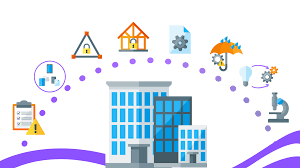Unleashing Potential: The Power of Continuous Development
The Art of Developing: Nurturing Ideas into Reality
Development is a process that transforms ideas and concepts into tangible outcomes. It involves creativity, problem-solving, and perseverance to bring something new into existence. Whether it’s software, infrastructure, products, or skills, development plays a crucial role in shaping the world we live in.
The Stages of Development
Developing begins with a spark of inspiration or a problem that needs solving. This initial idea is then refined through research, planning, and design. Prototyping and testing help validate the concept and identify areas for improvement. Iteration is key in the development process, allowing for continuous refinement until the final product meets expectations.
The Importance of Development
Development drives progress and innovation. It enables us to adapt to changing needs and challenges, improve efficiency, and enhance our quality of life. Without development, we would stagnate and miss out on opportunities for growth and advancement.
Challenges in Development
Developing is not without its challenges. From technical hurdles to resource constraints to market uncertainties, developers often face obstacles that require creative solutions and perseverance. Overcoming these challenges is part of what makes the development process rewarding and fulfilling.
Embracing Continuous Development
In today’s fast-paced world, continuous development is essential for staying relevant and competitive. Embracing lifelong learning, adapting to new technologies, and seeking feedback are all part of the journey toward personal and professional growth.
The Future of Development
As technology advances and society evolves, the future of development holds endless possibilities. From AI-driven solutions to sustainable innovations to transformative experiences, developers have a pivotal role in shaping tomorrow’s world.
In conclusion, developing is more than just a process – it’s a mindset that drives progress and innovation. By nurturing ideas into reality through creativity, collaboration, and perseverance, we can create a better future for all.
6 Essential Tips for Effective Development: From Goal Setting to Continuous Learning
- Set clear goals for your development projects.
- Break down complex tasks into smaller, manageable steps.
- Regularly review and refactor your code for better efficiency.
- Seek feedback from peers to improve and learn from others.
- Stay updated with the latest technologies and trends in development.
- Practice problem-solving through coding challenges and projects.
Set clear goals for your development projects.
Setting clear goals for your development projects is essential for success. By defining specific objectives and outcomes, you provide direction and focus for your efforts. Clear goals help you prioritize tasks, allocate resources effectively, and measure progress along the way. They also serve as a roadmap, guiding your decision-making and ensuring that your project stays on track. With well-defined goals in place, you can enhance productivity, maintain motivation, and ultimately achieve the desired results in your development endeavors.
Break down complex tasks into smaller, manageable steps.
Breaking down complex tasks into smaller, manageable steps is a valuable tip in the development process. By dividing a daunting project into smaller components, developers can focus on one task at a time, making it easier to track progress and maintain momentum. This approach not only helps in better organization and time management but also reduces the feeling of overwhelm, allowing for clearer problem-solving and more efficient execution of the overall task. Ultimately, breaking down complex tasks into manageable steps paves the way for a smoother and more successful development journey.
Regularly review and refactor your code for better efficiency.
Regularly reviewing and refactoring your code is a crucial practice in software development to ensure better efficiency and maintainability. By periodically examining your codebase, identifying areas for improvement, and making necessary adjustments, you can optimize performance, enhance readability, and reduce technical debt. Refactoring not only improves the quality of your code but also streamlines future development efforts by eliminating redundant or outdated components. Embracing this tip fosters a culture of continuous improvement and sets the foundation for robust and scalable software solutions.
Seek feedback from peers to improve and learn from others.
Seeking feedback from peers is a valuable practice in the development process as it provides fresh perspectives, constructive criticism, and new insights that can help improve one’s work. By actively engaging with others and being open to feedback, individuals not only refine their skills but also learn from the experiences and expertise of their peers. This collaborative approach fosters growth, encourages continuous learning, and ultimately leads to better outcomes in the development journey.
Stay updated with the latest technologies and trends in development.
Staying updated with the latest technologies and trends in development is crucial for professionals in the field to remain competitive and relevant. By keeping abreast of new tools, languages, frameworks, and best practices, developers can enhance their skills, streamline their workflows, and deliver cutting-edge solutions to meet the evolving needs of clients and users. Continuous learning and adaptation to industry advancements not only expand one’s knowledge base but also foster innovation and growth in the ever-changing landscape of technology development.
Practice problem-solving through coding challenges and projects.
Engaging in coding challenges and projects is a valuable way to enhance problem-solving skills in the realm of development. By actively participating in these activities, individuals can sharpen their analytical thinking, logical reasoning, and coding proficiency. Tackling diverse challenges and working on projects not only hones technical abilities but also fosters creativity and innovation. Through consistent practice and hands-on experience, developers can expand their problem-solving toolkit and become more adept at overcoming obstacles in the ever-evolving landscape of software development.




